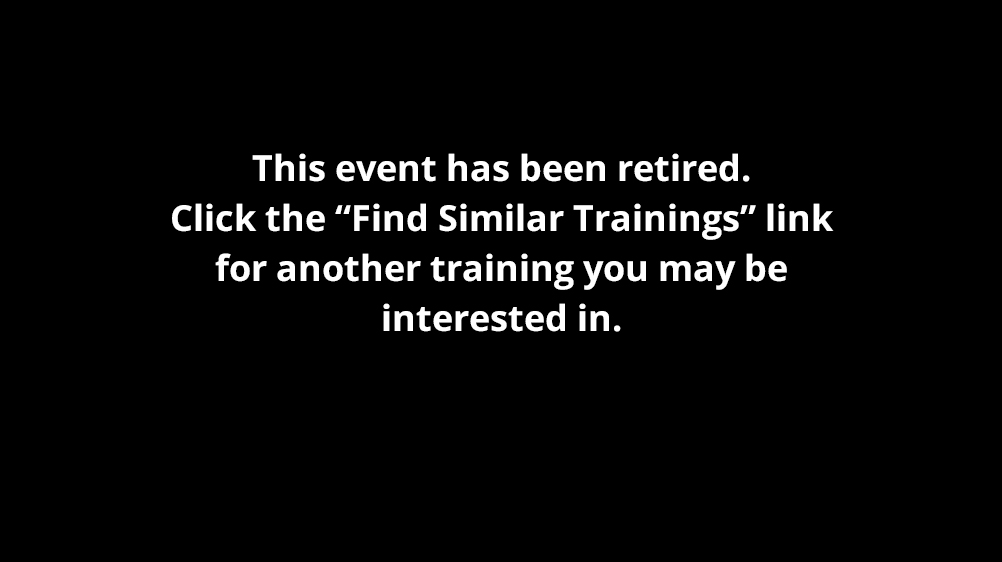Improving First-Year Student Experience Programs for At-Risk Students
(Retired)
| Last updated November 19, 2014
Why is this event retired?
At AI we want to always ensure that the best and most current trainings are available to members, and we regularly review our trainings to ensure that is the case.



